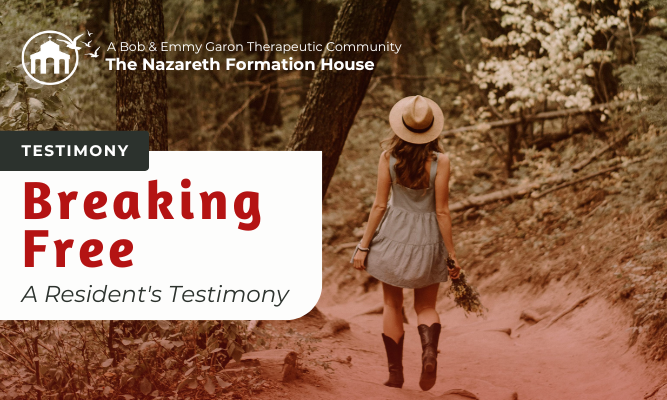Breaking Free

A Resident’s Testimony
Looking
back, I remember feeling suffocated by pressure. It felt like everyone, from my
family to other people around me, expected me to be perfect in everything I
did. Rebelling felt like the only way out. I clung to extreme ideologies and
dove headfirst into dangerous situations, not caring about the consequences.
Deep
down, I just craved a sense of belonging, a purpose. But instead, I found
myself adrift in a sea of unhealthy relationships and fleeting experiences. My
idealism fueled a lot of self-destructive choices, which all stemmed from a
misguided attempt to carve out some kind of independent life.
Entering
rehab was scary. At first, I resisted everything. But slowly, with the
counselors and therapists, I began to understand my truth. I began a journey of
self-discovery, confronting the traumas and wounds that shaped my negative
self-image and unhealthy coping mechanisms. It was a revelation – I realized I
wasn’t being driven by my true self, but by issues I wasn’t aware of, and that
shattered my illusion of control over my life.
Nazareth
became more than just a program; it became a family. I was given love and tough
love, the kind that pushed me to confront my reality and understand the root of
my issues. Their guidance, along with the principles of the “Nazareth way
of life,” empowered me to break free from negativity and build healthy
connections with others.
One
of the most powerful lessons I learned in therapy was that true identity comes
from within, not from external validation. Tito Bob always emphasized the
importance of letting go of old belief systems to embrace new ones. It was
incredibly painful, questioning everything I thought defined me. But through
this letting go, I began to discover who I truly was and what truly mattered in
life.
Reintegration
after rehab wasn’t a walk in the park. I naively expected home to be a safe
haven, but true safety comes from within, something I had to learn the hard
way. Familiar situations triggered old feelings, and I battled depression and
OCD. There were times when I desperately wanted to go back to Nazareth. It felt
like a perfect world, where problems were solved by a supportive community.
The
first few years after leaving rehab were a real struggle. There were times I
felt lost, questioning my progress. I was incredibly hard on myself, feeling
like I shouldn’t be having such a hard time after therapy. The self-blame was
crippling. But through it all, I had an incredible support system – the
constant guidance from the Nazareth family, the unwavering loyalty of true
friends, and the unwavering love of my family. They were my anchors, grounding
me when I felt like I was adrift.
Today,
I’m about to graduate college, fueled by a desire to become a psychologist. I
want to “pay forward” the transformative power of psychology, to help
others find the strength and self-acceptance that I found on my own journey.
Also with newfound motivation, I have a vision and goals that, despite the
uncertainty about the future, I know will guide me to keep becoming the better
version of myself – for me, my family, and the Nazareth community.
